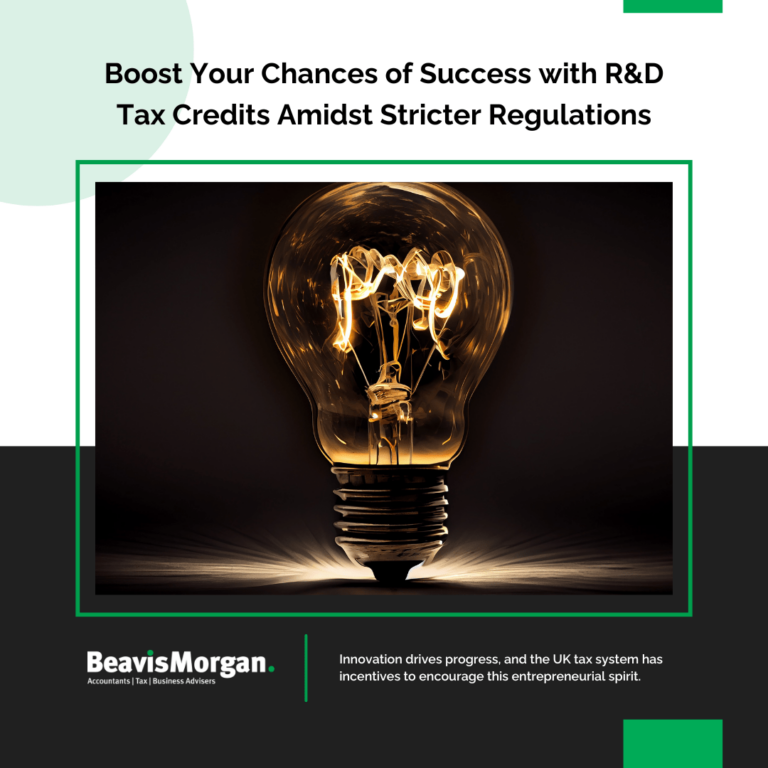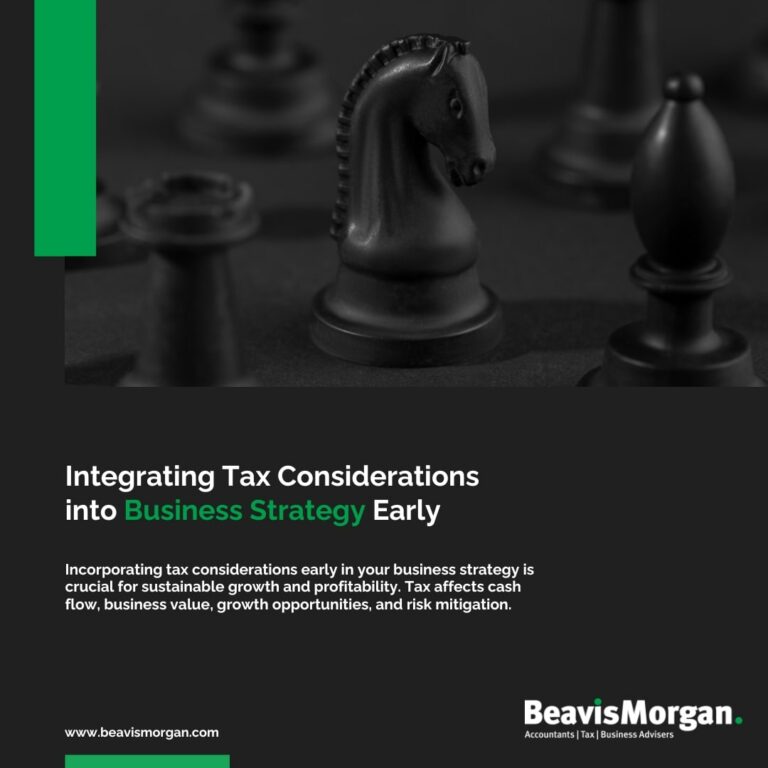Introduction to The Complexities of VAT in the Context of Varied Estate Activities
Value-Added Tax (VAT) is a significant consideration for any business, but for landed estates, with their varied and multifaceted activities, it presents a uniquely complex challenge. Landed estates often encompass a diverse portfolio of ventures – from traditional agricultural operations and commercial shooting activities to property rentals and hospitality services. Each of these enterprises comes with its own set of VAT implications, which can become intricate due to the range of rates and the conditions that apply.
The complexity is compounded by the fact that the activities of a rural estate are not just business transactions; they are deeply intertwined with the stewardship of land and heritage. Decisions made for VAT purposes can have far-reaching implications for the preservation of the estate and its long-term sustainability. For instance, the choice to opt for VAT registration is a strategic decision that impacts not only tax liability but also market positioning and competitive pricing.
Navigating VAT legislation requires a nuanced understanding of the tax framework as it applies to the wide-ranging activities within a rural estate. It is not enough to apply a one-size-fits-all approach; VAT planning must be tailored to the specific circumstances of each venture within the estate. The goal is to ensure that VAT is neither a burden that impedes the estate’s operations nor an oversight that leads to non-compliance and financial penalties.
The stakes are high, as VAT missteps can result in significant financial costs, administrative burdens, and potential disputes with tax authorities. Moreover, the dynamic nature of VAT legislation, with frequent updates and changes, necessitates a proactive and informed approach to VAT planning and compliance.
For landed estates, effective VAT management is not merely about compliance – it’s about strategic financial planning. It’s about understanding the interplay between different estate activities, the applicability of various VAT rates, the potential for recovery of input VAT, and the opportunities for reliefs and exemptions. It’s about making informed decisions that align with the estate’s financial goals and its heritage values.
Navigating the VAT landscape requires expertise that spans beyond basic accountancy, one that combines in-depth tax knowledge with an appreciation of the rural business environment. This is where Beavis Morgan’s specialised services become invaluable, offering guidance that is as diverse and multifaceted as the estates they advise.
In the next sections, we will delve into the importance of specialised VAT planning for various rural business ventures, discuss VAT’s impact on cash flow and profitability, explore how Beavis Morgan’s expertise can lead to significant savings, and showcase real-life case studies where effective VAT planning strategies have been successfully implemented.
The Importance of Specialised VAT Planning for Agricultural, Shooting, and Other Rural Business Ventures
The agricultural sector and rural business ventures such as shooting activities are not just fundamental components of the rural economy; they are deeply ingrained in the cultural fabric of the countryside. VAT planning for these businesses is crucial, as it goes beyond mere tax compliance—it plays a pivotal role in sustaining the financial viability and growth of these traditional yet dynamic sectors.
Agricultural Ventures: Navigating a Specialised VAT Terrain
Agriculture, the backbone of rural economies, encounters unique VAT implications. Farms often diversify their operations to include activities like agri-tourism, farm shops, or renewable energy projects, each with different VAT treatments. The standard, reduced, or even zero rates of VAT can apply depending on the nature of goods or services provided. For example, certain types of livestock or crop sales may be zero-rated, while agri-tourism activities might attract a standard VAT rate.
Specialised VAT planning becomes crucial here. It ensures that farmers and agricultural business owners can reclaim VAT on inputs where applicable, optimizing cash flow and reducing operational costs. Strategic decisions, such as opting for the Flat Rate VAT scheme or standard VAT accounting, have a profound impact on financial outcomes. These decisions must be tailored to the specific nature of the agricultural activities, considering factors like seasonality, market volatility, and diversification strategies.
Shooting and Rural Recreational Activities: A Distinct VAT Landscape
Shooting and other rural recreational ventures present a different set of VAT challenges. These activities often involve a mix of taxable, exempt, and outside the scope of VAT transactions. For instance, a shooting estate may offer taxable hospitality services alongside exempt land rents or shooting rights. Misclassification of these activities can lead to significant VAT liabilities or missed opportunities for VAT recovery.
Effective VAT planning for these ventures involves a comprehensive understanding of the VAT rules as they apply to each aspect of the operation. It also requires keeping abreast of changes in legislation that might impact VAT liabilities, such as alterations in tax rates or the introduction of new VAT reliefs.
The Role of Expertise in VAT Planning
Given the intricacies of VAT in these sectors, specialised knowledge is indispensable. Expert VAT planning helps in identifying the correct VAT treatment for diverse activities, ensuring compliance, and optimizing tax efficiency. For rural businesses, this could mean the difference between a financially viable operation and one that struggles under the weight of tax burdens.
Beavis Morgan, with its deep understanding of the rural economy and expertise in VAT legislation, plays a critical role in this context. They offer tailored VAT planning advice, ensuring that rural businesses are not only compliant with current legislation but also positioned to take advantage of any available VAT reliefs or schemes. Their advisory goes beyond generic solutions, offering bespoke strategies that consider the unique aspects of each rural venture.
For agricultural and rural businesses, the right VAT planning strategy can lead to substantial financial benefits. It can enhance cash flow, improve profitability, and provide the financial stability necessary for these businesses to thrive. In an industry where margins are often tight, and operations are subject to various external pressures, such as weather patterns and market fluctuations, efficient VAT planning can provide much-needed financial resilience.
In conclusion, specialised VAT planning is a critical component in the financial toolkit of agricultural, shooting, and rural business ventures. It requires a nuanced approach, one that Beavis Morgan is uniquely equipped to provide. Their expertise ensures that rural businesses can navigate the complex VAT landscape confidently, turning a potential challenge into an opportunity for financial optimization and growth.

How Beavis Morgan’s Expertise in VAT Legislation Can Lead to Significant Savings and Avoid Costly Pitfalls
In the intricate world of VAT legislation, particularly within the rural sector, the expertise of Beavis Morgan stands as a beacon of guidance and assurance. Their deep understanding of VAT laws and their applications in various rural business scenarios can lead to significant savings for landed estates and rural enterprises, while also helping to navigate and avoid the costly pitfalls associated with VAT compliance and planning.
Tailored VAT Solutions for Diverse Rural Activities
Rural businesses, with their diverse range of activities, require VAT solutions that are as unique as their operations. Beavis Morgan specialises in providing tailored VAT advice that aligns with the specific nature of each rural enterprise, whether it’s agriculture, shooting, hospitality, or renewable energy. By identifying the most advantageous VAT treatments and structures for each activity, they ensure that businesses are not overpaying VAT and are fully utilizing available reliefs and exemptions.
For example, in agriculture, where certain supplies might be zero-rated, Beavis Morgan can ensure that farmers are capitalising on these opportunities while remaining compliant with VAT regulations. In the case of rural estates that diversify into hospitality, they can guide on how to structure these ventures to optimize VAT efficiency.
Proactive VAT Planning to Maximise Cash Flow
Effective VAT planning goes beyond compliance – it’s a strategic tool that can be used to enhance cash flow. Beavis Morgan’s expertise in navigating the complexities of VAT legislation enables them to offer proactive advice, ensuring that rural businesses are making informed decisions that positively impact their cash flow. This could involve strategies like timing of purchases to optimize VAT recovery, choosing the most beneficial VAT accounting method, or advising on VAT implications of capital investments.
Avoiding VAT Pitfalls and Ensuring Compliance
VAT legislation is not only complex but also subject to frequent changes. Non-compliance, whether intentional or inadvertent, can lead to hefty penalties and interest charges. Beavis Morgan’s up-to-date knowledge of VAT legislation helps rural businesses avoid these pitfalls. They provide regular updates and advice on changing VAT laws, ensuring that businesses are always ahead of compliance requirements.
In the rural sector, where businesses often have multifaceted operations, the risk of misinterpreting VAT laws is high. Beavis Morgan’s expertise is crucial in these scenarios, where they can clarify the VAT treatment for different business activities and ensure that all transactions are accurately reported.
Case Studies Showcasing Successful VAT Planning Strategies Implemented by Beavis Morgan for Landed Estates
The proficiency of Beavis Morgan in VAT planning is best illustrated through real-life case studies that demonstrate the tangible benefits of strategic VAT management for landed estates. These examples highlight how Beavis Morgan’s expertise in VAT legislation has led to significant financial advantages and compliance successes for their clients.
Case Study 1: A Diversified Landed Estate
Background:
A large landed estate diversified into several ventures, including agriculture, property rentals, and a boutique hotel. The estate faced challenges in managing the VAT implications of these varied activities, particularly in how to efficiently recover VAT on shared expenses and minimise liabilities.
Strategy and Implementation:
Beavis Morgan conducted a thorough analysis of the estate’s operations to identify opportunities for VAT optimisation. They implemented a partial exemption method that allowed the estate to maximise VAT recovery on expenses shared between different parts of the business. This method was tailored to reflect the actual use of these expenses across the estate’s taxable, exempt, and non-business activities.
Beavis Morgan also advised on the VAT treatment of property renovations and conversions within the estate, ensuring compliance with the complex rules around property and construction VAT.
Outcome:
The partial exemption method led to a significant increase in recoverable VAT, enhancing the estate’s cash flow. The guidance on property-related VAT also ensured that the estate took advantage of available reliefs, leading to substantial cost savings in their development projects.
Case Study 2: A Historic Estate with Agricultural and Recreational Activities
Background:
A historic estate with a mix of agricultural operations and recreational activities, including shooting and fishing rights, faced difficulties in applying the correct VAT treatments to its diverse income streams.
Strategy and Implementation:
Beavis Morgan’s approach involved segregating the estate’s activities for VAT purposes, identifying the correct VAT treatment for each stream of income. They provided detailed advice on the VAT implications of the estate’s recreational activities, including the eligibility for certain VAT reliefs and the correct application of VAT on these services.
Additionally, Beavis Morgan assisted in implementing a VAT accounting system that accurately tracked and reported transactions according to their specific VAT treatment, simplifying the process of VAT return preparation and submission.
Outcome:
The estate achieved clarity in its VAT reporting, ensuring compliance and avoiding potential penalties. The advice on VAT reliefs and correct VAT application resulted in a more favourable VAT position, reducing overall VAT costs and enhancing profitability.
These case studies demonstrate Beavis Morgan’s ability to navigate the complexities of VAT planning for landed estates with diverse operations. Their expertise not only ensures VAT compliance but also leads to financial benefits, enhancing the overall efficiency and profitability of these estates. The success stories underscore the importance of tailored VAT strategies that consider the unique nature of each estate’s activities and the value of professional guidance in managing these fiscal responsibilities effectively.

Conclusion: The Value of Expert VAT Guidance in the Financial Health and Compliance of Rural Businesses
The journey through the various facets of VAT planning and compliance for rural businesses, particularly landed estates, underscores a fundamental truth: expert VAT guidance is indispensable for both the financial health and regulatory adherence of these enterprises. The complexities and nuances of VAT legislation, especially when applied to the diverse and multifaceted activities of rural businesses, demand a level of expertise and attention to detail that goes beyond general financial management.
Catalyst for Financial Sustainability
In an economic landscape where margins are often tight and cash flow is crucial, efficient VAT planning can be a significant catalyst for financial sustainability. Expert VAT guidance helps rural businesses not only to recover the correct amount of VAT and optimize their cash flow but also to make strategic decisions that can reduce tax liabilities and enhance profitability. This is particularly important for rural businesses that operate in an environment of fluctuating market conditions and varying seasonal demands.
Ensuring Compliance and Avoiding Penalties
The ever-changing nature of VAT legislation means that staying compliant is a continuous challenge. Missteps in VAT compliance can lead to costly penalties, disputes with tax authorities, and, in some cases, reputational damage. Expert VAT advice provides rural businesses with the assurance that their VAT affairs are managed accurately and in line with current legislation. This proactive approach to compliance not only avoids financial penalties but also instils confidence among stakeholders, including suppliers, customers, and financial institutions.
Tailored Strategies for Diverse Business Models
Rural enterprises are unique, often encompassing a range of activities from traditional farming to more modern diversifications like renewable energy or hospitality services. Expert VAT guidance is not a one-size-fits-all solution; it requires a tailored approach that considers the specific characteristics and needs of each business. Firms like Beavis Morgan specialise in understanding these unique business models and devising VAT strategies that align with the specific objectives and operations of each rural enterprise.
The Role of Beavis Morgan
Beavis Morgan’s role in guiding rural businesses through the labyrinth of VAT planning is invaluable. Their expertise in VAT legislation, coupled with a deep understanding of the rural business landscape, positions them as an essential partner for landed estates and rural businesses. Through their guidance, rural businesses can navigate VAT complexities with confidence, ensuring that their financial practices not only meet compliance standards but also contribute to their long-term financial success.
Final Thoughts
In conclusion, the role of expert VAT guidance in the financial health and compliance of rural businesses cannot be overstated. It is an integral component of sound financial management, crucial for sustaining profitability and ensuring adherence to regulatory standards. For rural businesses seeking to thrive in today’s challenging economic environment, partnering with a firm that offers specialised VAT expertise, such as Beavis Morgan, is a strategic investment in their future success and stability. This partnership ensures that rural businesses can continue to grow and prosper while maintaining the legacy and integrity of their operations.





